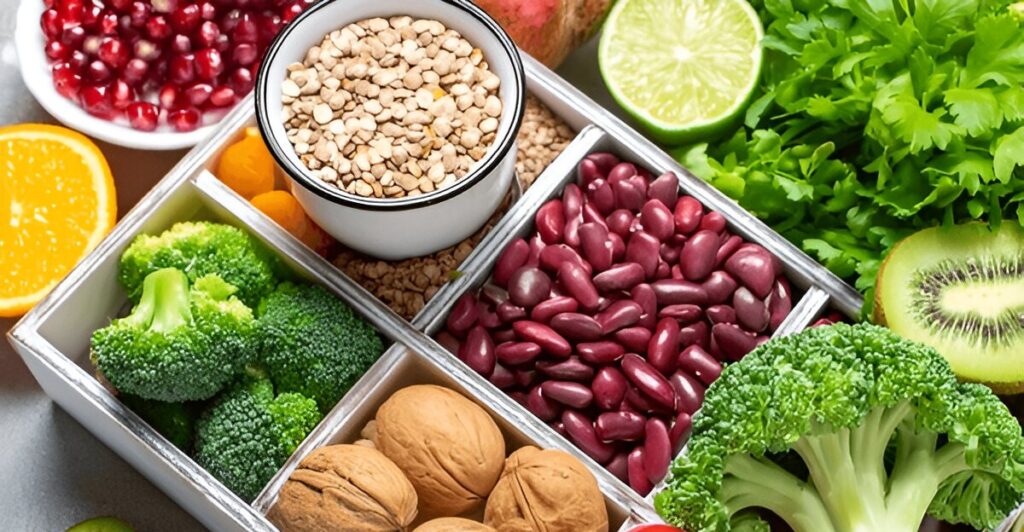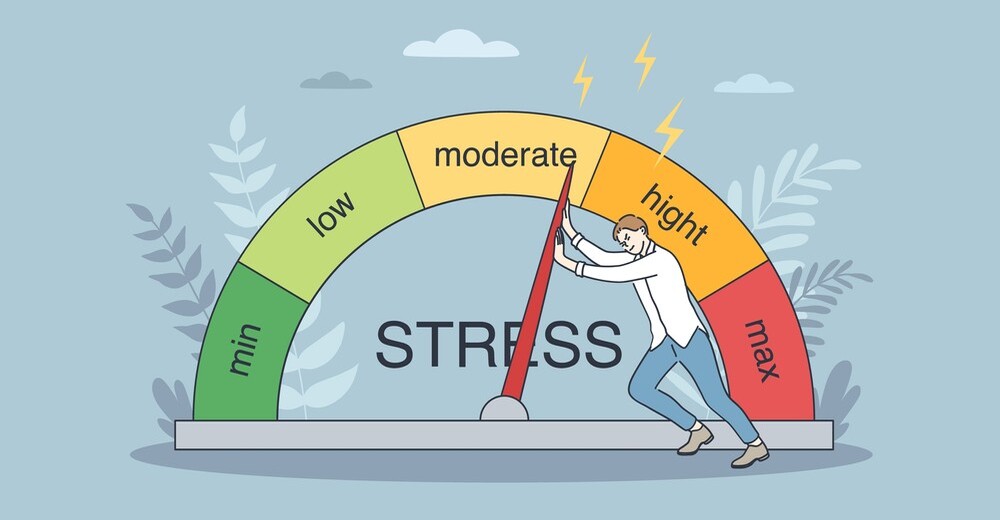Eating well is about more than just filling your plate—it’s about choosing foods that deliver maximum nutrition with every bite. Nutrient-dense foods are the superstars of a healthy diet, packed with vitamins, minerals, fiber, and antioxidants without excessive calories. Whether you’re aiming to boost energy, support immunity, or maintain a healthy weight, incorporating these foods into your meals can make a big difference. In this article, we’ll explore the top 10 nutrient-dense foods, their benefits, and how to enjoy them for optimal health.
What Are Nutrient-Dense Foods?
Nutrient-dense foods provide a high amount of essential nutrients—such as vitamins, minerals, protein, and healthy fats—relative to their calorie content. Unlike “empty calorie” foods like sugary snacks or processed chips, nutrient-dense foods nourish your body, support vital functions, and keep you feeling satisfied. They’re the foundation of a balanced diet, offering benefits like improved digestion, stronger immunity, and better heart health.
Let’s dive into the top 10 nutrient-dense foods you should add to your grocery list.
Top 10 Nutrient-Dense Foods
These foods stand out for their exceptional nutrient profiles and versatility in the kitchen. Each one is a powerhouse of health benefits, making them must-haves for anyone looking to eat smarter.
1. Spinach
Spinach is a leafy green superstar, loaded with vitamins A, C, and K, as well as folate, iron, and antioxidants. It supports eye health, boosts immunity, and promotes strong bones. Low in calories, spinach is perfect for adding volume to meals without adding extra calories.
- How to Enjoy: Toss in salads, blend into smoothies, or sauté with garlic as a side dish.
- Fun Fact: One cup of cooked spinach provides over 100% of your daily vitamin K needs.
2. Salmon
Salmon is a fatty fish rich in omega-3 fatty acids, high-quality protein, and vitamin D. Omega-3s reduce inflammation, support heart health, and enhance brain function, making salmon one of the most nutrient-dense foods for overall wellness.
- How to Enjoy: Grill or bake with lemon and herbs, add to salads, or use in sushi bowls.
- Tip: Opt for wild-caught salmon when possible for higher omega-3 content.
3. Blueberries
Blueberries are bursting with antioxidants, particularly anthocyanins, which protect against cell damage and support heart health. They’re also high in fiber, vitamin C, and manganese, all while being low in calories.
- How to Enjoy: Add to oatmeal, blend into smoothies, or eat fresh as a snack.
- Fun Fact: Frozen blueberries retain their nutrients, making them a budget-friendly option year-round.
4. Quinoa
Quinoa is a gluten-free whole grain that’s a complete protein, containing all nine essential amino acids. It’s also rich in fiber, magnesium, and iron, supporting muscle health, digestion, and energy production.
- How to Enjoy: Use as a base for grain bowls, mix into salads, or serve as a side dish.
- Tip: Rinse quinoa before cooking to remove its natural bitter coating.
5. Avocados
Avocados are creamy, nutrient-dense foods packed with heart-healthy monounsaturated fats, fiber, potassium, and vitamins E and K. They aid in nutrient absorption, support digestion, and promote healthy cholesterol levels.
- How to Enjoy: Spread on toast, add to salads, or blend into a creamy smoothie.
- Fun Fact: Avocados contain more potassium per serving than bananas.
6. Sweet Potatoes
Sweet potatoes are a vibrant source of beta-carotene (vitamin A), fiber, and vitamin C. They support eye health, immunity, and stable blood sugar, thanks to their complex carbs and fiber content.
- How to Enjoy: Bake as fries, mash as a side, or stuff with beans and veggies for a hearty meal.
- Tip: Leave the skin on for extra fiber and nutrients.
7. Eggs
Eggs are a budget-friendly powerhouse, offering high-quality protein, choline, and vitamins B12 and D. They support brain health, muscle growth, and satiety, making them one of the most versatile nutrient-dense foods.
- How to Enjoy: Scramble with veggies, boil for snacks, or use in frittatas.
- Fun Fact: The yolk contains most of the nutrients, so don’t skip it!
8. Kale
Kale is a nutrient-dense leafy green loaded with vitamins A, C, and K, plus fiber and antioxidants. It supports heart health, detoxification, and strong bones, making it a must-have for any healthy diet.
- How to Enjoy: Massage with olive oil for salads, bake into chips, or blend into soups.
- Tip: Massaging kale softens its texture and enhances its flavor.
9. Lentils
Lentils are plant-based nutrient-dense foods rich in protein, fiber, iron, and folate. They promote heart health, stabilize blood sugar, and support digestion, all while being affordable and versatile.
- How to Enjoy: Cook into soups, mix into salads, or use as a base for veggie burgers.
- Fun Fact: Lentils come in various colors (red, green, brown), each with unique textures and flavors.
10. Almonds
Almonds are a nutrient-dense nut packed with healthy fats, vitamin E, magnesium, and fiber. They support heart health, skin health, and satiety, making them a perfect on-the-go snack.
- How to Enjoy: Eat raw, sprinkle on yogurt, or blend into homemade almond butter.
- Tip: Stick to a small handful (about 1 ounce) to keep calories in check.
Why Nutrient-Dense Foods Are Essential
Incorporating nutrient-dense foods into your diet is a simple way to maximize health benefits without overcomplicating your meals. These foods:
- Boost Overall Health: Their high nutrient content supports immunity, heart health, and brain function.
- Aid Weight Management: Nutrient-dense foods are filling, helping you stay satisfied with fewer calories.
- Improve Energy: They provide steady energy without the crashes caused by processed foods.
- Support Longevity: Antioxidants and anti-inflammatory compounds protect against chronic diseases.
By prioritizing nutrient-dense foods, you’re investing in a stronger, healthier body.
How to Incorporate Nutrient-Dense Foods Into Your Diet
Adding these top 10 nutrient-dense foods to your meals is easier than you think. Here are practical tips to get started:
- Start Small: Swap one processed snack for a nutrient-dense option, like almonds instead of chips.
- Build Balanced Plates: Combine several nutrient-dense foods in one meal, like salmon with quinoa and kale.
- Prep in Advance: Chop veggies, cook grains, or portion nuts for quick access during busy days.
- Experiment with Recipes: Try new dishes, like a blueberry smoothie bowl or lentil curry, to keep things exciting.
- Shop Smart: Buy frozen or canned versions of these foods (e.g., frozen blueberries, canned lentils) for convenience and affordability.
Common Myths About Nutrient-Dense Foods
Let’s debunk a few misconceptions that might hold you back:
- Myth 1: Nutrient-Dense Foods Are Expensive
Many nutrient-dense foods, like eggs, lentils, and frozen veggies, are budget-friendly and widely available. - Myth 2: You Need to Eat Them Raw
Cooking can enhance nutrient availability in some foods (e.g., cooked spinach provides more iron than raw). - Myth 3: They’re Bland
With spices, herbs, and creative preparation, nutrient-dense foods can be delicious and satisfying.
How Nutrient-Dense Foods Fit Into a Healthy Lifestyle
These top 10 nutrient-dense foods are just one part of a holistic approach to wellness. Pair them with:
- Regular Exercise: Nutrient-dense foods fuel workouts and aid recovery.
- Adequate Hydration: Water enhances nutrient absorption and overall health.
- Mindful Eating: Savor these foods to maximize satisfaction and avoid overeating.
- Balanced Meals: Combine these foods with other whole foods for well-rounded nutrition.
Conclusion
The top 10 nutrient-dense foods—spinach, salmon, blueberries, quinoa, avocados, sweet potatoes, eggs, kale, lentils, and almonds—are your ticket to a healthier, more vibrant life. Packed with essential nutrients, these superfoods support everything from energy to immunity while being versatile and delicious. Start incorporating them into your meals today, whether through a kale salad, a quinoa bowl, or a handful of almonds. By prioritizing nutrient-dense foods, you’re making a simple yet powerful choice for better health. Here’s to eating well and feeling your best!



